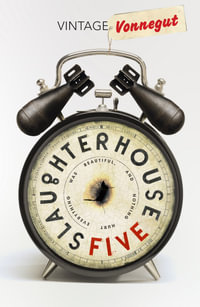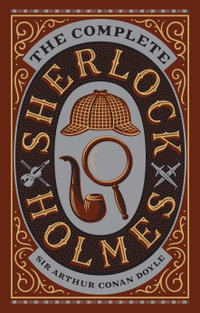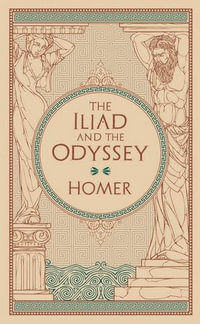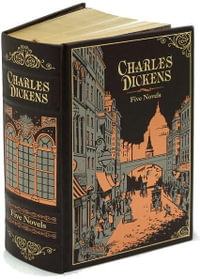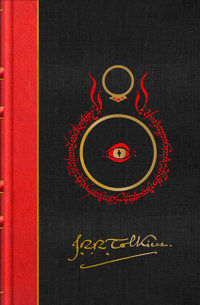
Mrs Harris Goes to Paris
And Mrs Harris Goes to New York
By: Paul Gallico
Paperback | 5 July 2010 | Edition Number 1
Sorry, we are not able to source the book you are looking for right now.
We did a search for other books with a similar title, however there were no matches. You can try selecting from a similar category, click on the author's name, or use the search box above to find your book.
Part of The Bloomsbury Group, books chosen by readers for readers.
Mrs Harris is a salt-of-the-earth London charlady with just one wish - to own a Dior dress. In all her years cleaning other people's houses she's never seen anything as beautiful or magical as the couture dresses hanging in Lady Dant's wardrobe and she's never wanted anything as much before. Determined to make her dream come true, Mrs Harris scrimps, saves and slaves away until one day, after three long, uncomplaining years, she finally has enough money to go to Paris.
When she arrives at the House of Dior, Mrs Harris has little idea of how her life is about to be turned upside down and how many other lives she will transform forever. Always kind, always cheery and always winsome, the indomitable Mrs Harris takes Paris by storm and learns one of life's greatest lessons along the way.
About Paul Gallico
Paul William Gallico was born in New York City, on 26th July, 1897. He invented and organised the Golden Gloves amateur boxing competition. During this time he was one of the most well-known sporting writers in America, and a minor celebrity. But he had always wanted to be a fiction writer, and was writing short stories and sports articles for magazines like Vanity Fair and the Saturday Evening Post. In 1936, he sold a short story to the movies for $5000, which gave him a stake. His first major book was Farewell to Sport - his farewell to sports writing. Though his name was well-known in the U.S., he was an unknown in the rest of the world. In 1941, the Snow Goose changed all that, and he became, if not a best-selling author by today's standards, a writer who was always in demand. He was married four times, and had several children. He died in Antibes on 15th July, 1976, just short of his 79th birthday.
Industry Reviews
Mrs Harris is a salt-of-the-earth London charlady who cheerfully cleans the houses of the rich. One day, when tidying Lady Dant’s wardrobe, she comes across the most beautiful thing she has ever seen in her life – a Dior dress. In all the years of her drab and humble existence, she's never seen anything as magical as the dress before her and she's never wanted anything as much before. Determined to make her dream come true, Mrs Harris scrimps, saves and slaves away until one day, after three long, uncomplaining years, she finally has enough money to go to Paris.
When she arrives at the House of Dior, Mrs Harris has little idea of how her life is about to be turned upside down and how many other lives she will transform forever. Always kind, always cheery and always winsome, the indomitable Mrs Harris takes Paris by storm and learns one of life's greatest lessons along the way.
This treasure from the 1950s introduces the irrepressible Mrs Harris, part charlady, part fairy-godmother, whose adventures take her from her humble London roots to the heights of glamour.
An extract:
The small, slender woman with apple-red cheeks, greying hair, and shrewd, almost naughty little eyes sat with her face pressed against the cabin window of the BEA Viscount on the morning flight from London to Paris.
As, with a rush and a roar, it lifted itself from the runway, her spirits soared aloft with it. She was nervous, but not at all frightened, for she was convinced that nothing could happen to her now. Hers was the bliss of one who knew that at last she was off upon the adventure at the end of which lay her heart’s desire.
She was neatly dressed in a somewhat shabby brown twill coat and clean brown cotton gloves, and she carried a battered imitation leather brown handbag which she hugged close to her. And well she might, for it contained not only ten one-pound notes, the legal limit of currency that could be exported from the British Isles, and a return air ticket to Paris, but likewise the sum of fourteen hundred dollars in American currency, a thick roll of five, ten, and twenty dollar bills, held together by a rubber band. Only in the hat she wore did her ebullient nature manifest itself. It was of green straw and to the front of it was attached the flexible stem of a huge and preposterous rose which leaned this way and that, seemingly following the hand of the pilot upon the wheel as the plane banked and circled for altitude.
Any knowledgeable London housewife who had ever availed herself of the services of that unique breed of ‘daily women’, who come in to scrub and tidy up by the hour, or for that matter anyone English would have said: ‘The woman under that hat could only be a London char,’ and what is more, they would have been right.
On the Viscount’s passenger list she appeared as Mrs Ada Harris, though she invariably pronounced it as ‘Mrs ’Arris’, Number 5 Willis Gardens, Battersea, London, SWII, and she was indeed a charwoman, a widow, who ‘did’ for a clientele living in and on the fringes of fashionable Eaton Square and Belgravia.
Up to that magic moment of finding herself hoisted off the face of the earth her life had been one of never-ending drudgery, relieved by nothing more than an occasional visit to the flicks, the pub on the corner, or an evening at the
music hall.
The world in which Mrs Harris, now approaching the sixties, moved, was one of perpetual mess, slop, and untidiness.
Not once, but half a dozen times a day she opened the doors of homes or flats with the keys entrusted to her, to face the litter of dirty dishes and greasy pans in the sink, acres of stale, rumpled, unmade beds, clothing scattered about, wet towels on the bathroom floor, water left in the tooth-glass, dirty laundry to be packed up and, of course, cigarette ends in the ashtrays, dust on tables and mirrors, and all the other litter that human pigs are capable of leaving behind them when they leave their homes in the morning.
Mrs Harris cleaned up these messes because it was her profession, a way of making a living and keeping body and soul together. And yet, with some chars there was more to it than just that, and particularly with Mrs Harris - a kind of perpetual house- proudness. And it was a creative effort as well, something in which a person might take pride and satisfaction. She came to these rooms to find them pigsties; she left them neat, clean, sparkling, and sweet-smelling.
The fact that when she returned the next day they would be pigsties all over again, did not bother her. She was paid her three shillings an hour and she would again leave them immaculate. This was the life and professions of the little woman, one of thirty assorted passengers on the plane bound for Paris.
The green and brown checkered relief map of British soil slipped beneath the wings of the aircraft and gave way suddenly to the wind-ruffled blue of the English Channel.
Where previously she had looked down with interest at the novelty of the tiny houses and farms below, these were now exchanged for the slender shapes of tankers and freighters ploughing the surface of the sea, and for the first time Mrs Harris realised that she was leaving England behind her and was about to enter a foreign country, to be amongst foreign people who spoke a foreign language and who, for all she had ever heard about them, were immoral, grasping, ate snails and frogs, and were particularly inclined to crimes of passion and dismembered bodies in trunks. She was still not afraid, for fear has no place in the vocabulary of the British char, but she was now all the more determined to be on her guard and not stand for any nonsense. It was a tremendous errand that was taking her to Paris, but she hoped in the accomplishing of it to have as little to do with the French people as possible.
A wholesome British steward served her a wholesome British breakfast and then would take no money for it saying that it came with the compliments of the airline, a little bit of all right.
Mrs Harris kept her face pressed to the window and her bag to her side. The steward came through saying: ‘You will see the Eiffel Tower in the distance on your right.’
‘Lumme,’ said Mrs Harris to herself, when a moment later she discovered its pin point upthrust from what seemed to be an old patchwork quilt of grey roofs and chimney pots, with a single snake-like blue thread of a river running through it.
‘It don’t look as big as in the pictures.’
A minute or so later they landed without so much as a bump on die concrete of the French airport. Mrs Harris’s spirits rose still further. None of her friend Mrs Butterfield’s gloomy prognostications that the thing would either blow up in the sky or plunge with her to the bottom of the sea had been borne out. Paris perhaps might not prove so formidable after all. Nevertheless, from now on she was inclined to be suspicious and careful, a precaution not lessened by the long bus ride from Le Bourget through strange streets, lined with strange houses, and shops offering strange wares in a strange and unintelligible language.
The British European Airways man assigned to assist travellers confused by the hurly-burly of the Invalides Air Station in Paris took one look at the hat, the bag, the outsize shoes and, of course, the inimitable saucy little eyes, and recognised her immediately for what she was. ‘Good Heavens,’ he said to himself under his breath, ‘a London char! What on earth is she doing here in Paris? The domestic help situation here can’t be that bad.’
He noted her uncertainty, quickly consulted his list, and guessed right again. Moving smoothly to her side he touched his cap and asked: ‘Can I help you in any way,
Mrs Harris?’
The clever, roguish eyes inspected him carefully for any signs of moral depravity or foreign monkey business.
Somewhat to her disappointment he seemed just like any Englishman. Since his approach was polite and harmless, she said cautiously: ‘Ow, so they can speak the Queen’s English over 'ere.’
The Airways man said: ‘Well, ma’am, I ought to. I am British. But I think you will find most people over here speak a little English and you can get along. I see you are returning with us on the eleven o’clock plane this evening.
Is there any particular place you wish to go now?’
Mrs Harris reflected upon just how much she was prepared to tell a stranger and then replied firmly: ‘I’ll just ’ave a taxi, if it’s all the same to you. I’ve got me ten
quid.’
‘Ah, well then,’ the Airways man continued, ‘you’d better have some of it in French money. One pound comes to roughly a thousand francs.’
At the bureau de change a few of Mrs Harris’s green pound notes were translated into flimsy, tattered, dirty blue paper with the figure 1000 on them and some greasy aluminium hundred–franc coins. Mrs Harris was justly indignant. ‘What’s all this,’ she demanded. ‘Call this ’ere stuff money? Them coins feel like duds.’
The Airways man smiled. ‘Well, in a sense they are, but only the Government’s allowed to make them. The French just haven’t caught up with the fact yet. They still pass, though.’ He guided her through the crowd and up the ramp and placed her in a taxi. ‘Where shall I tell him to take you?’
Mrs Harris sat up with her slender back, thin from hard work, ramrod straight, the pink rose pointing due north, her face as calm and composed as that of a duchess. Only the little eyes were dancing with excitement. ‘Tell him to take me to the dress shop of Christian Dior,’ she said.
The Airways man stared at her, refusing the evidence of his ears. ‘I beg your pardon, ma’am?’
‘The dress shop of Dior, you ’eard me!’
The Airways man had heard her all right, but his brain, used to dealing with all kind of emergencies and queer cases, could just not grasp the connexion between a London daily woman, one of that vast army that sallied forth every morning to scrub up the city’s dirt in office and home, and the most exclusive fashion centre in the world, and he still hesitated.
‘Come on then, get on with it,’ commanded Mrs Harris sharply, ‘what’s so strange about a lydy going to buy ’erself a dress in Paris?’
Shaken to the marrow the Airways man spoke to the driver in French: ‘Take madame to the House of Christian Dior in the Avenue Montaigne. If you try to do her out of so much as a sou, I’ll take care you never get back on this rank again.’
As Mrs Harris was driven off he went back inside shaking his head. He felt he had seen everything now.
Riding along in the taxi, her heart pounding with excitement, Mrs Harris’s thoughts went back to London and she hoped that Mrs Butterfield would be able to cope.
Mrs Harris’s list of clients, whilst subject to change without notice – that is to say she might suddenly dismiss one of them, never they her – remained fairly static. There were some to whom she gave several hours every day and others who desired her services only three times a week. She worked ten hours a day, her labours beginning at eight in the morning and ending at six o’clock in the night with a half-day devoted to certain favoured customers on Saturdays.
This schedule she maintained fifty-two weeks in the year.
Since there were just so many hours in a day her patrons were limited to some six or eight and she herself restricted the area of her labours to the fashionable sector of Eaton and Belgrave Squares. For once she had arrived in that neighbourhood in the morning she was then able to walk quickly from house to flat to mews.
There was a Major Wallace, her bachelor, whom naturally she spoiled and in whose frequent and changing love affairs she took an avid interest.
She was fond of Mrs Schreiber, the somewhat muddled wife of a Hollywood film representative living in London, for her American warmth and generosity which displayed itself in many ways, but chiefly by her interest in and consideration for Mrs Harris.
She ‘did’ for fashionable Lady Dant, the wife of a wealthy industrial baron, who maintained a flat in London as well as a country manor – Lady Dant was always getting her picture in The Queen or The Tatler at hunt balls and charity affairs and this made Mrs Harris proud.
There were others, a White Russian Countess Wyszcinska, whom Mrs Harris liked because she was divinely mad, a young married couple, a second son, whose charming flat she loved because there were pretty things in it, Mrs Fford Foulks, a divorcée, who was a valuable mine of gossip as to what the idle rich were up to, and several others, including a little actress, Miss Pamela Penrose, who was struggling to gain recognition from her base in a two-room mews flat.
All of these establishments Mrs Harris looked after quite on her own. Yet in an emergency she could fall back on her friend and alter ego Mrs Violet Butterfield, like herself a widow and a char, and inclined to take the gloomy view of life and affairs wherever there was any choice.
Mrs Butterfield, who was as large and stout as Mrs Harris appeared to be thin and frail, naturally had her own set of clients, fortunately likewise in the same neighbourhood.
But they helped one another out with a nice bit of teamwork whenever the necessity arose.
If either of them was ill or had pressing business elsewhere, the other would manage to pinch enough time from her clients to make the rounds of the other’s customers sufficiently to keep them quiet and satisfied. Were Mrs Harris to be bedded with some malaise, as rarely happened, she would telephone her clients to advise them of this catastrophe and add: ‘But don’t you worry. Me friend, Mrs Butterfield, will look in on you and I’ll be around again tomorrow,’ and vice versa. Although they were different as night and day in character they were firm, loving, and loyal friends and considered covering one another a part of their duty in life. A friend was a friend and that was that. Mrs Harris’s basement flat was at Number 5 Willis Gardens, Mrs Butterfield lived in Number 7 and rare was the day that they did not meet or visit one another to exchange news or confidences.
The taxi cab crossed a big river, the one Mrs Harris had seen from the air, now grey instead of blue. On the bridge the driver got himself into a violent altercation with another chauffeur. They shouted and screamed at one another. Mrs Harris did not understand the words but guessed at the language and the import and smiled happily to herself. This time her thoughts returned to Miss Pamela Penrose and the fuss she had kicked up when informed of Mrs Harris’s intention to take a day off. Mrs Harris had made it a special point with Mrs Butterfield to see that the aspiring actress was not neglected.
Curiously, for all her shrewdness and judgement of character, Mrs Harris’s favourite of all her clients was Miss Penrose. The girl, whose real name, as Mrs Harris had gleaned from superficially inspecting letters that occasionally came so addressed, was Enid Suite, lived untidily in a mews flat. She was a small, smooth blonde with a tight mouth and curiously static eyes that seemed fixed greedily upon but one thing – herself. She had an exquisite figure and clever tiny feet that had never tripped upon the corpses she had climbed over on her way up the ladder of success. There was nothing she would not do to further what she was pleased to call her career which up to that time had included a year or two in the chorus line, some bit parts in a few pictures, and several appearances on television. She was mean, hard, selfish, and ruthless, and her manners were abominable as well.
One would have thought that Mrs Harris would have penetrated the false front of this little beast and abandoned her, for it was so that when something about a client displeased Mrs Harris she simply dropped the key through the letter box and did not return. Like so many of her sisters who did not char for charring’s sake alone, even though it was her living, she also brought a certain warmth to it. She had to like either the person or the person’s home where she worked.
But it was just the fact that Mrs Harris had pierced the front of Miss Snite to a certain extent that made her stick to her, for she understood the fierce, wild, hungry craving of the girl to be something, to be somebody, to lift herself out of the rut of everyday struggle and acquire some of the good things of life for herself.
Before her own extraordinary craving which had brought her to Paris Mrs Harris had not experienced this in herself though she understood it very well. With her it had not been so much the endeavour to make something of herself as a battle to survive, and in that sense the two of them were not unalike. When Mrs Harris’s husband had died some twenty years past and left her penniless she simply had to make a go of things, her widow’s pension being insufficient.
And then too there was the glamour of the theatre which surrounded Miss Snite, or rather Penrose, as Mrs Harris chose to think of her, and this was irresistible. Mrs Harris was not impressed by titles, wealth, position, or family, but she was susceptible to the enchantment that enveloped anything or anyone that had to do with the stage, the television, or the flicks. She had no way of knowing how tenuous and sketchy was Miss Penrose’s connexion with these, that she was not only a bad little girl but a mediocre actress. It was sufficient for Mrs Harris that from time to time her voice was heard on the wireless or she would pass across the television screen wearing an apron and carrying a tray. Mrs Harris respected the lone battle the girl was waging, humoured her, cosseted her, and took from her what she would not from anyone else.
The taxi cab entered a broad street, lined with beautiful buildings, but Mrs Harris had no eye or time for architecture.
‘ ’Ow far is it?’ she shouted at the cab driver who replied, not slowing down one whit, by taking both hands off the steering wheel, waving his arms in the air, turning around and shouting back at her. Mrs Harris, of course, understood not a word, but his smile beneath a walrus moustache was engaging and friendly enough, and so she settled back to endure the ride until she should reach the so-long-coveted destination. She reflected upon the strange series of events that led to her being there.
© Paul Gallico
ISBN: 9781408808566
ISBN-10: 1408808560
Series: The Bloomsbury Group
Published: 5th July 2010
Format: Paperback
Language: English
Number of Pages: 320
Publisher: Bloomsbury
Country of Publication: GB
Edition Number: 1
Dimensions (cm): 19.5 x 14 x 2
Weight (kg): 0.23
Shipping
| Standard Shipping | Express Shipping | |
|---|---|---|
| Metro postcodes: | $9.99 | $14.95 |
| Regional postcodes: | $9.99 | $14.95 |
| Rural postcodes: | $9.99 | $14.95 |
How to return your order
At Booktopia, we offer hassle-free returns in accordance with our returns policy. If you wish to return an item, please get in touch with Booktopia Customer Care.
Additional postage charges may be applicable.
Defective items
If there is a problem with any of the items received for your order then the Booktopia Customer Care team is ready to assist you.
For more info please visit our Help Centre.
You Can Find This Book In

The Complete Tales and Poems of Edgar Allan Poe - Omnibus Edition
Barnes & Noble Leatherbound Classic Collection
Leather Bound Book
RRP $59.99
$43.25
OFF





